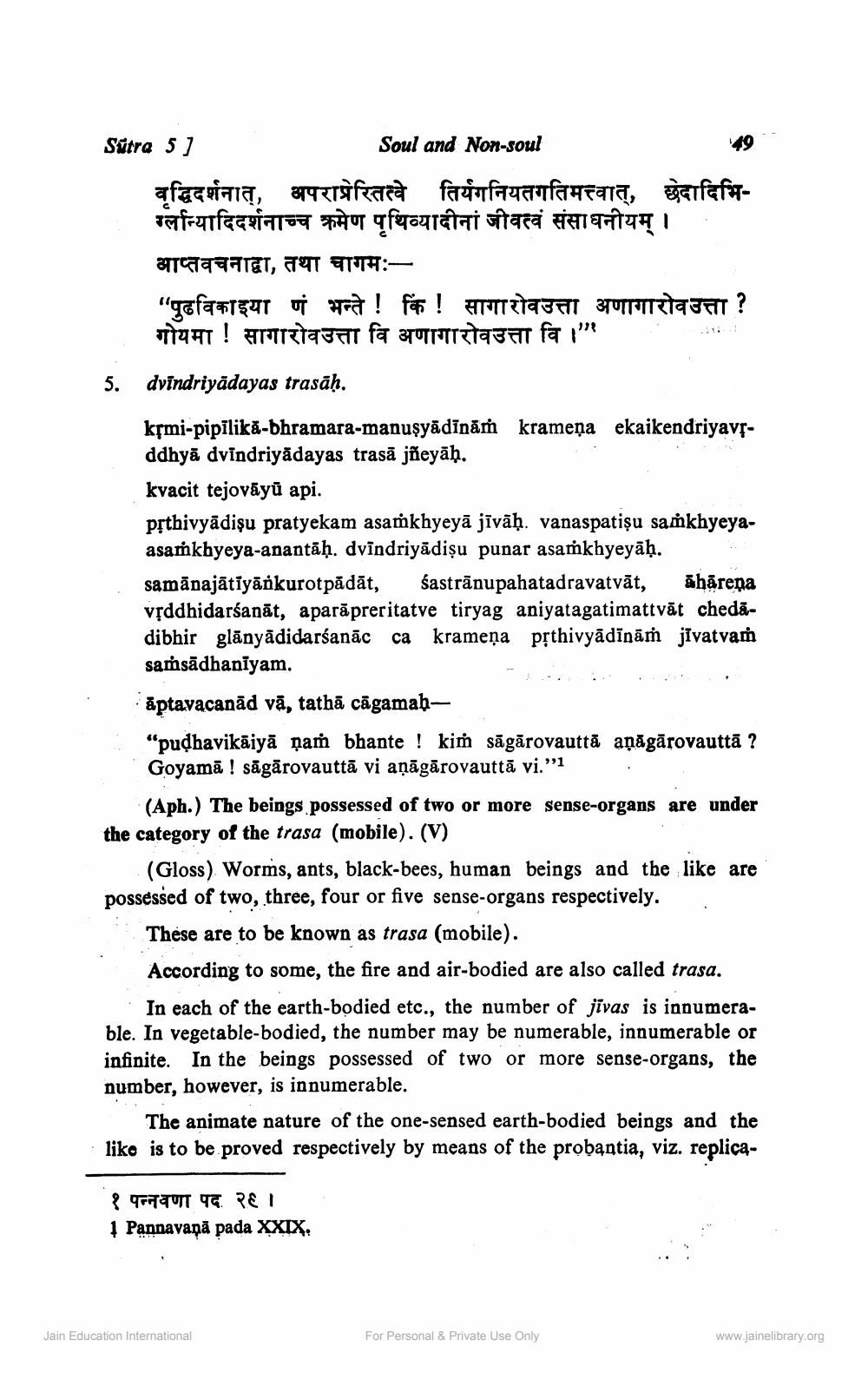________________
49
Sútre 5 ]
Soul and Non-soul वृद्धिदर्शनात, अपराप्रेरितत्वे तिर्यगनियतगतिमत्त्वात्, छेदादिभिग्लान्यादिदर्शनाच्च क्रमेण पृथिव्यादीनां जीवत्वं संसाधनीयम् । आप्तवचनाद्वा, तथा चागमः"gefa#1541 us * ! fo! ATTTTTTGTT 3TUTTTTAJTIT ? गोयमा ! सागारोवउत्ता वि अणागारोवउत्ता वि।"" dvindriyadayas trasāḥ.
kşmi-pipīliká-bhramara-manuşyādīnāṁ krameņa ekaikendriyavrddhyā dvindriyādayas trasā jõeyāḥ. kvacit tejováyū api. přthivyādişu pratyekam asamkhyeyā jīvāḥ. vanaspatiņu samkhyeyaasamkhyeya-anantāḥ. dvīndriyādișu punar asamkhyeyāḥ. samānajātīyāökurot pādāt, sastrānupahatadravatvāt, āhārena vşddhidarśanāt, aparāpreritatve tiryag aniyatagatimattvāt chedadibhir glānyādidarśanāc ca krameņa přthivyādīnām jīvatvam saṁsādhaniyam. āptavacanās vā, tathā cāgamah"pudhavikāiyā ņam bhante ! kim sāgārovauttā aṇāgārovauttā ? Goyamā ! sāgārovauttā vi aņāgārovauttā vi.”l
(Aph.) The beings possessed of two or more sense-organs are under the category of the trasa (mobile). (V)
(Gloss). Worms, ants, black-bees, human beings and the like are possessed of two, three, four or five sense-organs respectively. .
These are to be known as trasa (mobile). According to some, the fire and air-bodied are also called trasa.
In each of the earth-bodied etc., the number of jivas is innumerable. In vegetable-bodied, the number may be numerable, innumerable or infinite. In the beings possessed of two or more sense-organs, the number, however, is innumerable.
The animate nature of the one-sensed earth-bodied beings and the like is to be proved respectively by means of the probantia, viz. replica
१ पन्नवणा पद. २६ । | Pannavaņā pada XXIX.
Jain Education International
For Personal & Private Use Only
www.jainelibrary.org




